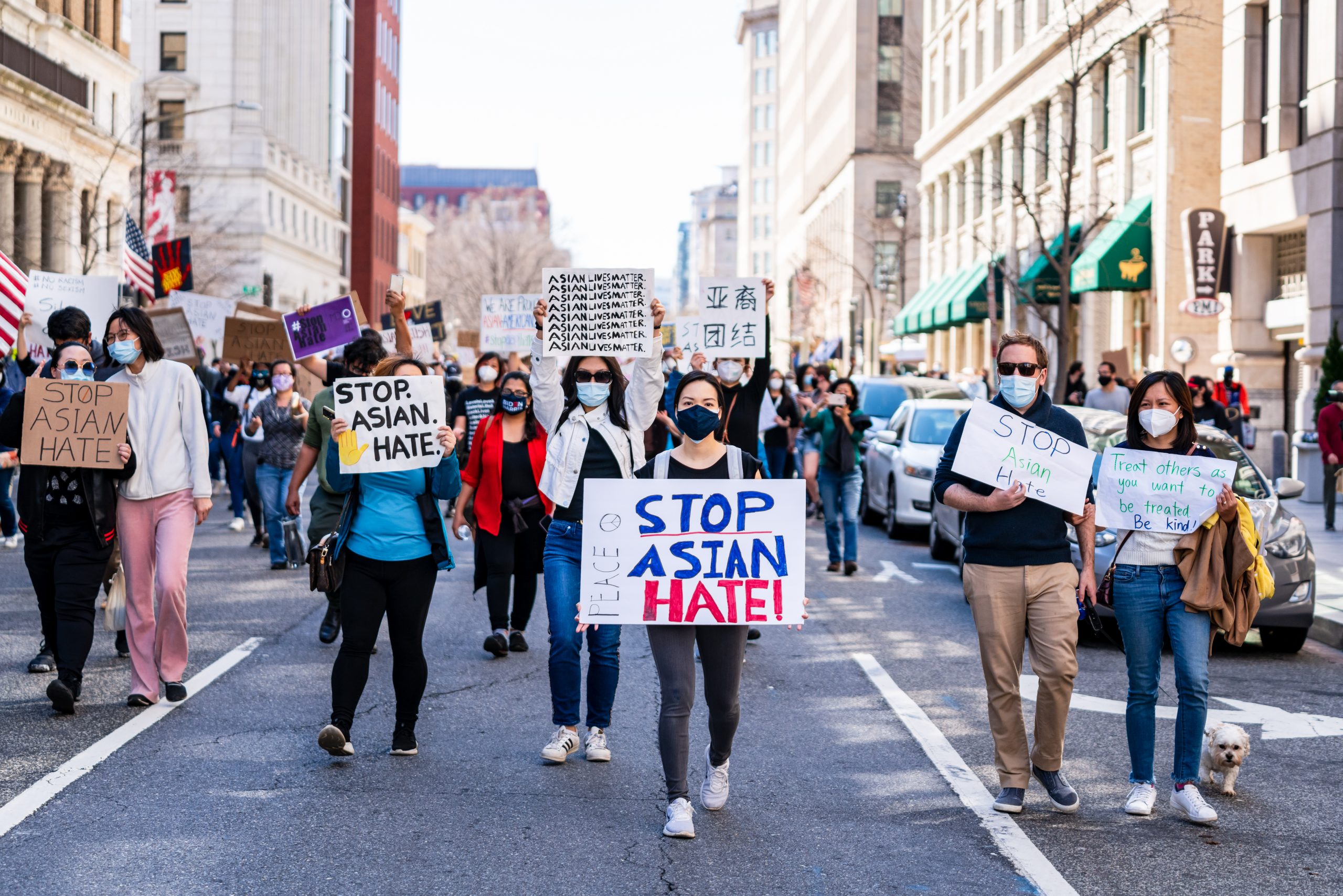BLOG: What the Constitution Promises Asian Americans

Mass shootings and frequent attacks have brought violence against Asian Americans to the forefront of our national attention. We keep learning of incident after horrific incident where Asian Americans have been violently targeted simply for being Asian American. Unfortunately, violence against Asian Americans has a long history in this country. At the same time, Asian Americans have long been part of America’s story and the Constitution promises Asian Americans equality and justice, as it does for all in America. In fact, Asian Americans have played important roles in demanding their rights be respected, particularly through the promises of the 14th Amendment.
Hatred towards Asian Americans did not just begin with Donald Trump and his supporters who blame them for the coronavirus. Since their arrival in larger numbers in the 19th century, Asian Americans have experienced deep hatred and violence directed at them. For instance, in the Chinese massacre of 1871, after the 1870 passage of a Naturalization Act that prohibited Chinese immigrants from becoming naturalized American citizens, at least 17 Chinese people were lynched by rioters after a white man had been murdered. Asian Americans have long been cast as the “other,” to be feared and blamed for taking jobs or other resources from white Americans. In more recent history, Asian Americans have been labeled the “model minority,” largely in an attempt to minimize the systemic impact of ongoing racism toward Black Americans and the legacy of slavery.
As the Constitutional Accountability Center’s David Gans wrote in Perfecting the Declaration: The Text and History of the Equal Protection Clause of the Fourteenth Amendment, the 14th Amendment’s Equal Protection Clause was written into the Constitution “to guarantee equality to all persons, bringing the Constitution back in line with the Declaration of Independence” following “a century in which the Constitution sanctioned slavery.” While certainly the 14th Amendment was written to reckon with America’s history of slavery, Asian Americans were also part of its story. With the Equal Protection Clause, “[t]he framers wrote the constitutional guarantee broadly to ensure, for example, that white unionists in the South as well as Asian immigrants in the West were protected from arbitrary and invidious discrimination. As a result, the framers repeatedly rejected proposals that would have prohibited racial discrimination, and nothing else. Only the broader guarantee of the equal protection of the laws could protect the right of all persons to equality before the law.”
As generations of Americans fought to uphold the rights promised to them in the Constitution, and particularly in the 14th Amendment, Asian Americans were included at the forefront. In particular, the Supreme Court cases Yick Wo v. Hopkins and United States v. Wong Kim Ark vindicated rights important to many Americans.
In Yick Wo v. Hopkins from 1886, Chinese laundry facilities were being targeted by a local ordinance in San Francisco. The Supreme Court ruled that even if the text of the ordinance did not explicitly target Chinese owners, racially discriminatory administration of the ordinance rendered it unconstitutional. The Court held that the 14th Amendment provides for equal protection for all people, regardless of race or citizenship.
In United States v. Wong Kim Ark in 1898, Wong Kim Ark was born in the United States and was denied entry back into the country after travel to China. He challenged this denial and the Supreme Court upheld his citizenship. The Court explained that the Citizenship Clause of the 14th Amendment applied to Wong Kim Ark, as well as to anyone born in the United States. The clause states, “All persons born or naturalized in the United States, and subject to the jurisdiction thereof, are citizens of the United States and of the State wherein they reside.”
Certainly, the Supreme Court has not always vindicated the rights of Asian Americans. As one scholar states, “There is a long history of racism directed at Japanese-Americans in California, and it very much manifested itself in what occurred in” Korematsu v. United States (1944). Often cited as one of the Court’s “worst decisions” of all time, the Court held that Japanese Americans could be moved from their homes to internment camps. It wasn’t until 2018 that the Supreme Court repudiated this case, but ironically Chief Justice John Roberts did so as he upheld former President Donald Trump’s Muslim Ban in a deeply problematic opinion that itself harmed many Asian Americans and their families.
As we look to the future, Asian Americans, like all Americans, can and will continue to look to the Constitution to vindicate their rights to equality and justice under the law. As America continues the hard and necessary work of racial justice, embracing the text, history, and values of the whole Constitution, including the Reconstruction amendments, will be essential. It is only in doing so that we can fulfill the promises of the Constitution for all of us, including Asian Americans.
